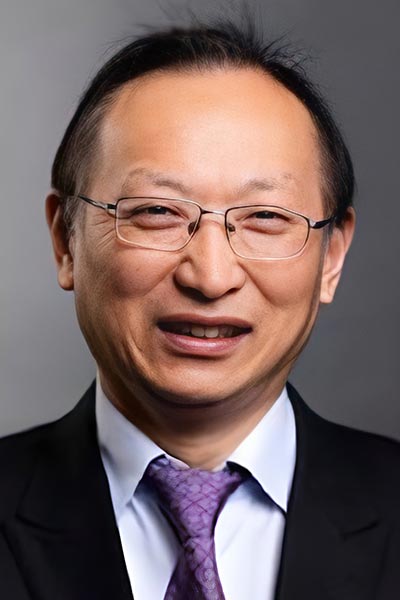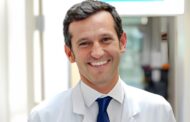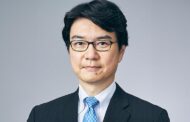IASLC President-elect Caicun Zhou, MD, PhD, has a long history as an active member of the association. As Director of Oncology at Shanghai East Hospital and Professor and Director of Cancer Institute of the Tongji University School of Medicine in Shanghai, China, his research focuses on early detection, molecular targeted therapy, anti-angiogenesis therapy, and immunotherapy. He first joined the IASLC Board of Directors in 2019.

ICLN recently had the opportunity to talk with Dr. Zhou about the 2024 World Conference on Lung Cancer and his upcoming term as IASLC president. Dr. Zhou discussed what he was looking forward to as the conference continues and his thoughts on where the association can most effectively focus its attention in the coming years.
ILCN: As WCLC begins, what sessions or events are you most looking forward to and why?
Dr. Zhou: About 8,000 people are attending this great meeting, and I expect some of the clinical trial results could change our daily practice.
This is a special World Conference on Lung Cancer because we are celebrating the 50th anniversary of our multinational, multidisciplinary organization. I’m looking forward to hearing from our great leaders of the past about how they contributed to the treatment of lung cancer and ways the diagnosis and treatment may progress in the future.
ILCN: As President-elect, what are your thoughts about your goals for your time leading the IASLC? Are there specific issues or areas you want to focus on as president?
Dr. Zhou: The IASLC recently unveiled a strategic plan to improve multidisciplinary therapies for lung cancer and to level disparities between areas around the world. I hope to continue to support the implementation of this strategic plan, especially in Asia.
More than 60% of all lung cancers are in Asia. There are many developing countries and access to care is not balanced across the region. There is no common language and economies are not all so good. We need more academic activities to improve awareness of lung cancer in this region.
And as we come into the era of precision medicine, using molecular testing is as important as pathology. The rate of biomarker testing is not high globally. We should promote biomarker testing before the initiation of therapy. We should pay special attention to uncommon mutations. We should also push next generation sequencing testing and/or panel biomarker PCR-based testing.
Tissue is always an issue. We should teach our doctors how to do biopsies using bronchoscopy and other methods to be sure we always have enough tissue for biomarker testing. With more tissue, the testing rate could be increased.
ILCN: During your time on the IASLC Board and while serving on the Tobacco Control and Cessation and the Education Committees, what questions or concerns have you heard from members? Have these questions affected your approach to efforts to treat and cure lung cancer?
Dr. Zhou: We will be hearing special reports on lung cancer screening and smoking cessation this year. Lung cancer screening is very important, finding early stages of lung cancer that can be cured with simple surgery. We are waiting on more data on screening, but I do think low-dose CT scanning will become standard practice worldwide.
Prevention is also becoming more and more important. We should further our efforts to promote smoking cessation, especially in Asia. We need the help of government policy and the public, but improving smoking cessation could significantly decrease lung cancer-related mortality.
ILCN: Have you been to San Diego before? If so, what are you looking forward to seeing again?
Dr. Zhou: I was in San Diego once, many years ago, for an American Society of Clinical Oncology-IASLC joint meeting, but I could only stay one day. The beauty of the city impressed me very much, and I want to take the opportunity to see more of it this time.





